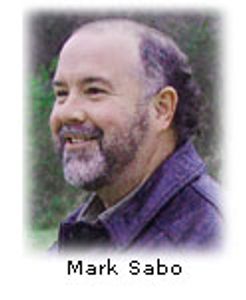
Ask Catawba College Chemistry Professor Dr. Mark Sabo how he liked his summer vacation last year and he'll tell you he liked it so much that he's going back to the same place this summer.
Sabo spent 10 weeks on the campus of the FBI Academy in Quantico, Virginia, in the Visiting Scientist Program with the FBI Counterterrorism and Forensic Science Research Unit (CFSRU). He was so invigorated by his experience that he plans to return again.
Known on Catawba's campus for his Caveman Chemistry course and for his propensity and skill in creating explosions for demonstration purposes, Sabo says he was definitely in his element at Quantico working with researchers and scientists from the United States and from countries such as Poland, Morocco, and Malaysia.
"I fit right in there, not only because of my interests, but because I was familiar with instrumental research. I had a chance to sharpen my research skills and work with top-notch researchers."
Sabo's background is in gas chromatography and mass spectrometry. He used his skills to help organize and teach labs for crime lab folks who were also at the FBI Academy. In retrospect, Sabo sees his summer research as "working for a bigger and better good" and advancing student education at Catawba College. Sabo recalls. "My experience enhanced introductory, upper-level, and research courses at Catawba by putting the content of science in the context of real-world applications such as forensic science."
Sabo describes the FBI Academy as being "like a university." The different areas he was involved with included explosives and hazardous materials response. "I went there to do research," he notes, "and the Counterterrorism and Forensic Science Research Unit (CFSRU) is where all the research is done for the FBI. CFSRU develops new technology and methods for analyzing physical evidence and passes that along to the FBI Laboratory. It is the FBI Laboratory that provides forensic and technical services to federal, state, and local law enforcement agencies."
Although he can't disclose the specific details of his summer experience, he says he worked on some projects sponsored by the Explosives Unit and Hazardous Materials Response Unit at the FBI Laboratory.
"One of my projects was to develop a new method of identifying hazardous materials used in terrorism or environmental crimes involving chemical, biological, and nuclear weapons. I evaluated an instrument that could be used for this," Sabo recalls.
While at Quantico, Sabo was assigned a mentor he describes as "phenomenal," Research Chemist Brian Eckenrode. "He was interested in me completing my project, but he wanted to expose me to so much more. He was concerned most about educating me," Sabo explains. "I expressed interest in explosives and he sent me to explosives class. It was also very rewarding when I got pulled into meetings to give my opinions or to offer a new perspective on potential projects."
Also impressive to Sabo was how much effort the FBI and other agencies put into "staying one step ahead of the criminals." He got to see a large-scale model of the shoe containing explosives in its heel worn by infamous Shoe Bomber Richard Reid and says "it was huge." He saw a replica of the bomb used in the 1996 Centennial Park bombing during the Summer Olympics in Atlanta which was filled with nails and screws to create shrapnel and more damage, and "a lot of other interesting explosive devices." He also obtained a new smokeless, low explosive recipe that he's "anxious to try."
Most disconcerting for Sabo, however, was his realization of the "amount of evil that exists in the world today. So many people consider themselves ‘chemists,' willing to try their hand at creating illegal drugs, hazardous materials, and explosives meant to cause harm to someone else." He notes that many of the recipes used for their conjurings that are posted on the Internet are "inaccurate or intentionally meant to cause harm to the person who tries to play chemist in the privacy of their homes."
Sabo leaves this week to go back to work at CFSRU. One of the projects he will be working on this summer involves "developing new methods to identify the stinky compounds that decomposing bodies produce in order to help the FBI and other law enforcement locate clandestine gravesites."
Sabo is most appreciative of his family's support for his summer participation in the Visiting Scientist Program. His wife Jan encouraged him, noting it was a "great opportunity," and even his two teenagers, Megan and Matt, seemed to like saying, "I'm proud of you."
RELATED CONTENT:
